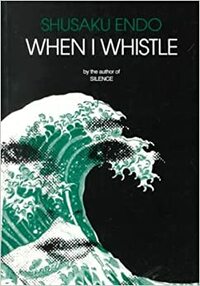Take a photo of a barcode or cover
dngoldman's review
4.0
11.17
I had not heard of Endo before seeing this book at a local bookstore. I don’t know what made me pick up the book, but I’m glad I did. Endo is in the canon of modern Japanese not novelists , and a Japanese friend tells me he’s standard reading for students. I can see why.
Endo is an extremely clear, direct writer, and his flat style (I mean this as a compliment) allows the intensity of the psychological, social, and moreal delemias full range with ever descending into being maudlin or overwrought. I look forward to reading his other works.
This novel focus on two related stories - the first focus on two boys in their last year of high school (Ozo and his odd friend Flatfish) at the dawn of Japan’s involvement in WWII and the other other on Ozo’s son (a young doctor) well after the war ends. The stories connect when the girl of Flatfish’s teen infatuation because a patient in the son’s ward. The novel bristles with subtle and often ambiguous moral issues. Some of the main themes include:
* The difference between pre and post War II Japan. Pre- simple, rural, stern, nationalistic; post- modern, sophisticated, materialistic. It’s Both are striving, and ruthless in a way. The post materialism and nihilism of the son does not compare favorable with the pre-war simplicity. Yet, the novel is not nostalgic.
* Endo construct the novel’s two parts as parallels. The first, Flatfish will do anything to will Akio and the Son for this bosses daughter. Neither is real love, but Flatfish’s is based on sweet naiveté while the son’s is is purely gain success.
* Why the memory certain events and people stay with us and remain poignant.
* The novel brims with the small decisions we make the impact they have on others and the longer term impact on ourselves.
I had not heard of Endo before seeing this book at a local bookstore. I don’t know what made me pick up the book, but I’m glad I did. Endo is in the canon of modern Japanese not novelists , and a Japanese friend tells me he’s standard reading for students. I can see why.
Endo is an extremely clear, direct writer, and his flat style (I mean this as a compliment) allows the intensity of the psychological, social, and moreal delemias full range with ever descending into being maudlin or overwrought. I look forward to reading his other works.
This novel focus on two related stories - the first focus on two boys in their last year of high school (Ozo and his odd friend Flatfish) at the dawn of Japan’s involvement in WWII and the other other on Ozo’s son (a young doctor) well after the war ends. The stories connect when the girl of Flatfish’s teen infatuation because a patient in the son’s ward. The novel bristles with subtle and often ambiguous moral issues. Some of the main themes include:
* The difference between pre and post War II Japan. Pre- simple, rural, stern, nationalistic; post- modern, sophisticated, materialistic. It’s Both are striving, and ruthless in a way. The post materialism and nihilism of the son does not compare favorable with the pre-war simplicity. Yet, the novel is not nostalgic.
* Endo construct the novel’s two parts as parallels. The first, Flatfish will do anything to will Akio and the Son for this bosses daughter. Neither is real love, but Flatfish’s is based on sweet naiveté while the son’s is is purely gain success.
* Why the memory certain events and people stay with us and remain poignant.
* The novel brims with the small decisions we make the impact they have on others and the longer term impact on ourselves.
